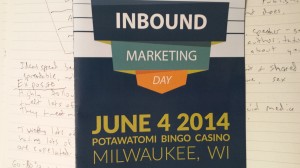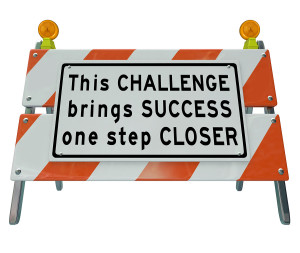 When I was looking to buy my first car (lease actually), I learned a valuable lesson about figuring things out on my own. After putting down $750 and setting a date to take delivery on a new Sentra with the salesman, the owner of the dealership called me and told me I didn’t have enough credit and that I would either need to give them more money up front or get a co-signer.
When I was looking to buy my first car (lease actually), I learned a valuable lesson about figuring things out on my own. After putting down $750 and setting a date to take delivery on a new Sentra with the salesman, the owner of the dealership called me and told me I didn’t have enough credit and that I would either need to give them more money up front or get a co-signer.You Ain’t Gettin’ No Co-signer
 When I was looking to buy my first car (lease actually), I learned a valuable lesson about figuring things out on my own. After putting down $750 and setting a date to take delivery on a new Sentra with the salesman, the owner of the dealership called me and told me I didn’t have enough credit and that I would either need to give them more money up front or get a co-signer.
When I was looking to buy my first car (lease actually), I learned a valuable lesson about figuring things out on my own. After putting down $750 and setting a date to take delivery on a new Sentra with the salesman, the owner of the dealership called me and told me I didn’t have enough credit and that I would either need to give them more money up front or get a co-signer.How to Keep Your Self-Talk Positive
 Science has shown that we have anywhere from 30,000 to 70,000 thoughts a day, which means we are bombarded with self-talk every minute we’re awake. How do we allow ourselves to remain positive when there’s so much coming at us?
Science has shown that we have anywhere from 30,000 to 70,000 thoughts a day, which means we are bombarded with self-talk every minute we’re awake. How do we allow ourselves to remain positive when there’s so much coming at us?
Go Where Your Community Is To Find Your Audience
I’ve been in Door County the last few days enjoying a quiet getaway with my wife. Since I was four years old, Door County has been a family vacation destination and one of my favorite things to do is visit the different artists and their galleries.
Showing Your True Self to Stand Out
 I’ve been working on my resume since losing my job. One issue I had with it, is that it didn’t seem to represent who I was. I’ve been thinking about injecting more personality into it, and in fact, started doing that with my cover letter. I am more than a list of job responsibilities.
I’ve been working on my resume since losing my job. One issue I had with it, is that it didn’t seem to represent who I was. I’ve been thinking about injecting more personality into it, and in fact, started doing that with my cover letter. I am more than a list of job responsibilities.
3 Takeaways from Inbound Marketing Day
 Last Wednesday I attended Inbound Marketing Day at Potawatomi Bingo Casino in Milwaukee. What a great mix of local and national inbound marketing experts. I heard great presentations about content, landing page optimization, buyer personas, video strategy, and a lot more.
Last Wednesday I attended Inbound Marketing Day at Potawatomi Bingo Casino in Milwaukee. What a great mix of local and national inbound marketing experts. I heard great presentations about content, landing page optimization, buyer personas, video strategy, and a lot more.
How to Build Momentum
 I’ve been networking with at least one person for eight out of the last 11 days since my job was eliminated. It’s been good to connect with people who have offered their advice, support, and friendship. I’ve come back after each meeting with a burst of energy which carries me into the next day.
I’ve been networking with at least one person for eight out of the last 11 days since my job was eliminated. It’s been good to connect with people who have offered their advice, support, and friendship. I’ve come back after each meeting with a burst of energy which carries me into the next day.Five Lessons I Learned When My Job Was Eliminated
 Last Thursday was like any other; I got up, went to work, and started my day. Mid-morning, my boss asked to see me. I walked into his office and when I turned the corner I noticed our HR Manager was there and my eyes got wide. I took a seat and was told that because of the way the business was going and job consolidation, he had eliminated my job. HR walked me through some paperwork, I packed my belongings, and was escorted out the door. I got in my car and drove home. I was in shock.
Last Thursday was like any other; I got up, went to work, and started my day. Mid-morning, my boss asked to see me. I walked into his office and when I turned the corner I noticed our HR Manager was there and my eyes got wide. I took a seat and was told that because of the way the business was going and job consolidation, he had eliminated my job. HR walked me through some paperwork, I packed my belongings, and was escorted out the door. I got in my car and drove home. I was in shock.
Starting from Scratch
 This past weekend I went golfing with my good friend Andy. Before hitting the course we hit the driving range. He wanted to work on my iron shots and chipping, which have been all over the place lately. So, we did what needed to be done, we started from scratch. He showed me how to swing my irons as if I’ve never golfed before. He had me start with the basics.
This past weekend I went golfing with my good friend Andy. Before hitting the course we hit the driving range. He wanted to work on my iron shots and chipping, which have been all over the place lately. So, we did what needed to be done, we started from scratch. He showed me how to swing my irons as if I’ve never golfed before. He had me start with the basics.
The Freedom to Experiment
 We’re told early on in life that we need to stay in the lines, don’t be sloppy, be neat. We can’t do things differently than others; that we need to blend in. But, if we aren’t given the chance to experiment, we’ll never know what we are capable of achieving. How do you learn to take leaps into the unknown when so much emphasis today is placed on being perfect?
We’re told early on in life that we need to stay in the lines, don’t be sloppy, be neat. We can’t do things differently than others; that we need to blend in. But, if we aren’t given the chance to experiment, we’ll never know what we are capable of achieving. How do you learn to take leaps into the unknown when so much emphasis today is placed on being perfect?
Staying Focused
 This past weekend I went on a golf outing with some friends. Golf is a challenging game. There are the physical components to it; you have to be lined up to the ball properly, take the proper swing, etc, but the main part of the game is mental.
This past weekend I went on a golf outing with some friends. Golf is a challenging game. There are the physical components to it; you have to be lined up to the ball properly, take the proper swing, etc, but the main part of the game is mental.
Golf forces you to concentrate on the moment; the shot at hand. When I think about hitting a good shot and focus on that I can often do it. But, when I think about the previous shot or the next shot, it affects my score – negatively.

Follow Me!